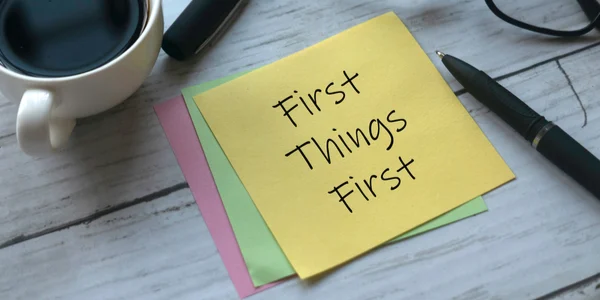CeCe has an upcoming medical procedure that many of us over the age of 50 endure every five years or so. And I just received notice that I have a very important meeting which will take me out of the state for three days which, as you might guess, hits right on the date of her procedure.
We agreed that we would reschedule her procedure a week or so later so I could be there with her. It’s important and wise that we have these done promptly to help avoid or at least have an early diagnosis of any chronic health problems.
Rescheduling her procedure was very important, and it was the first domino in a row of important dominos we needed to coordinate for August.
“CeCe, can you call early today and get a set time and date for your procedure. This will allow me to reschedule and schedule other time-sensitive meetings that might conflict with the date.”
“Sure, if you are positive you have to go out of town.”
“I am, I’m sorry, but we should be able to move your procedure a week. I will adjust my schedule to make sure we get your date set again.”
A few hours later, I inquire to see if we have a date so I can start moving things. CeCe is outside working in the yard on some “urgent” weeding that she must get done today.
“No, I haven’t called yet. They have surgeries today anyway.”
“CeCe, will you please call and get this started so I can balance the rest of the schedule?”
CeCe will be the first to share with you that she can get easily distracted with urgent things to do. But, frankly, we all get distracted by urgent things that take our attention away from what is important.
How do we develop the discipline to focus more on important long-term goals than what is perceived as urgent? First, what are our top priorities that will impact our future success? It’s hard to prioritize important things if we haven’t focused on what they are. How do we break them down into smaller projects so that we start progress sooner? Smaller projects also help us create focus time for these important goals.
What is our highest energy time during the day? (Mine is early morning.) If we can create periods of non-interruptions during our high energy time, we can not only focus on what’s important, we can do so when we are the most productive.



